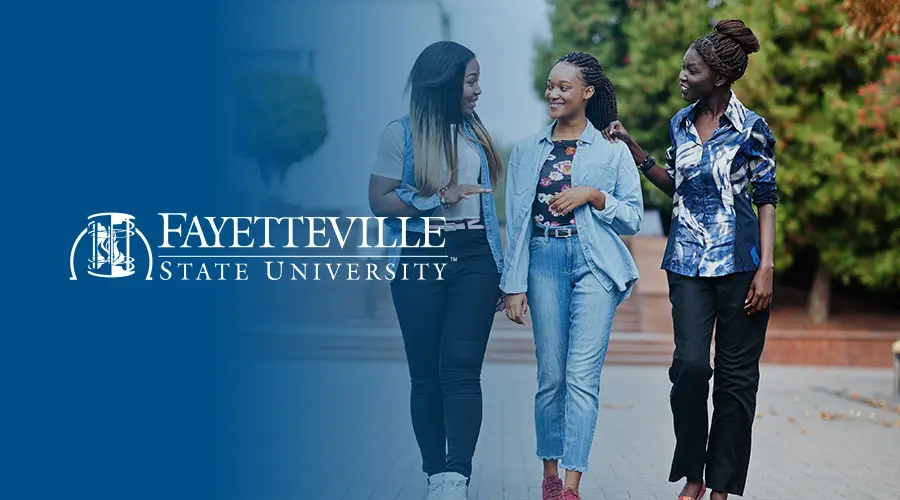In June 2024, Fayetteville State University (FSU) received an anonymous $750,000 donation. Funds from this gift went toward FSU’s 30-60-90 Graduate on Time Initiative, particularly its 30-60-90 Summer School Scholarship. The program is designed to help students graduate on time, or early, and encourages them to take 15 credit hours a semester. With 30 credits, students are considered a sophomore, 60 credits a junior and 90 credits a senior. Students earn their degree with 120 credits. A component of this initiative is its 30-60-90 Free Summer School Scholarship.
FSU’s 30-60-90 Free Summer School Scholarship helps students by covering:
- Two classes or up to seven free credit hours per summer
- Fees, including book rentals
- On-campus housing and meals
Since FSU received this anonymous gift, enrollment in the summer school program has increased. Being on campus during the summer also allows students to take advantage of university resources like campus facilities and safe recreational activities. For students with financial difficulties, these resources are especially helpful.
Ahead, we share more ways that students can reduce their debt burden. We also discuss the work of Student Freedom Initiative (SFI) and how it helps students from HBCUs and other institutions increase their social and economic mobility.
Reducing the Debt Burden for Students
Reducing loan debt for students who often lack access to opportunities and resources can have a profound impact. According to a 2023 elvtr survey, 54% of Americans have experienced mental health issues because of the stress of student loan debt. The same survey found that 84% of students delayed important life events to prioritize loan payments. With Black students facing a disproportionately higher share of student loan debt, addressing this issue becomes even more urgent.
Programs like FSU’s 30-60-90 Graduate on Time Initiative can help reduce student debt by offering free credit hours over the summer and encouraging students to earn their degrees on time. Graduating on time (or early) reduces the overall amount of tuition students have to pay back after graduation.
Other ways to reduce student debt include:
- Enrolling in AP and dual enrollment (college) classes in high school
- Attending community colleges that have lower costs of attendance
- Submitting a FAFSA for federal and local student aid
- Applying for scholarships and grants
- Working for companies that offer tuition reimbursement
- Obtaining student loan forgiveness
- Entering alternative student loan programs
- Taking free courses to offset tuition costs
All of these options can help Historically Black College and University (HBCU) students earn their degrees on time. Another way eligible students can reduce their debt burden is by working with organizations like SFI.
How SFI Is Helping Reduce Student Debt for FSU Students
SFI was founded in 2020 after investor and philanthropist Robert F. Smith paid off the student debt of the entire 2019 Morehouse College graduating class. SFI helps students of HBCUs, other Minority Serving Institutions (MSIs) and Tribal Colleges and Universities (TCUs) gain freedom in professional and life choices by reducing student loan debt and increasing their social and economic mobility.
SFI programming includes internship and career opportunities via internXL, the Handling Everyday Life Problems for Students (HELPS) program and cybersecurity, broadband and solar initiatives. Through Student Freedom Fund (SFF), SFI also offers FSU STEM majors and other qualified students a private education loan called the Student Freedom Loan Agreement (SFLA). Through the SFLA, students are not responsible for payments until after graduation, and the SFLA offers flexible terms to make sure repayment is achievable.
Learn more about how to relieve student loan debt by visiting SFI’s website. And, follow Smith on LinkedIn to learn more about education reform and supporting HBCU students.
